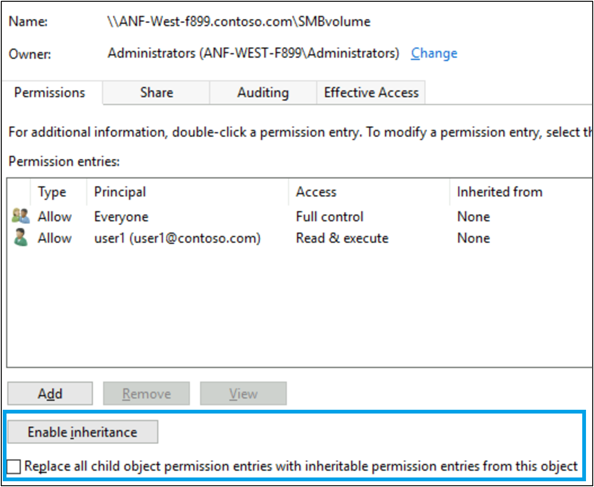Understand NAS file permissions in Azure NetApp Files
To control access to specific files and folders in a file system, permissions can be applied. File and folder permissions are more granular than share permissions. The following table shows the differences in permission attributes that file and share permissions can apply.
| SMB share permission | NFS export policy rule permissions | SMB file permission attributes | NFS file permission attributes |
|---|---|---|---|
|
|
|
NFSv3
NFSv4.1
|
File and folder permissions can overrule share permissions, as the most restrictive permissions countermand less restrictive permissions.
Permission inheritance
Folders can be assigned inheritance flags, which means that parent folder permissions propagate to child objects. This can help simplify permission management on high file count environments. Inheritance can be disabled on specific files or folders as needed.
- In Windows SMB shares, inheritance is controlled in the advanced permission view.
- For NFSv3, permission inheritance doesn’t work via ACL, but instead can be mimicked using umask and setgid flags.
- With NFSv4.1, permission inheritance can be handled using inheritance flags on ACLs.
